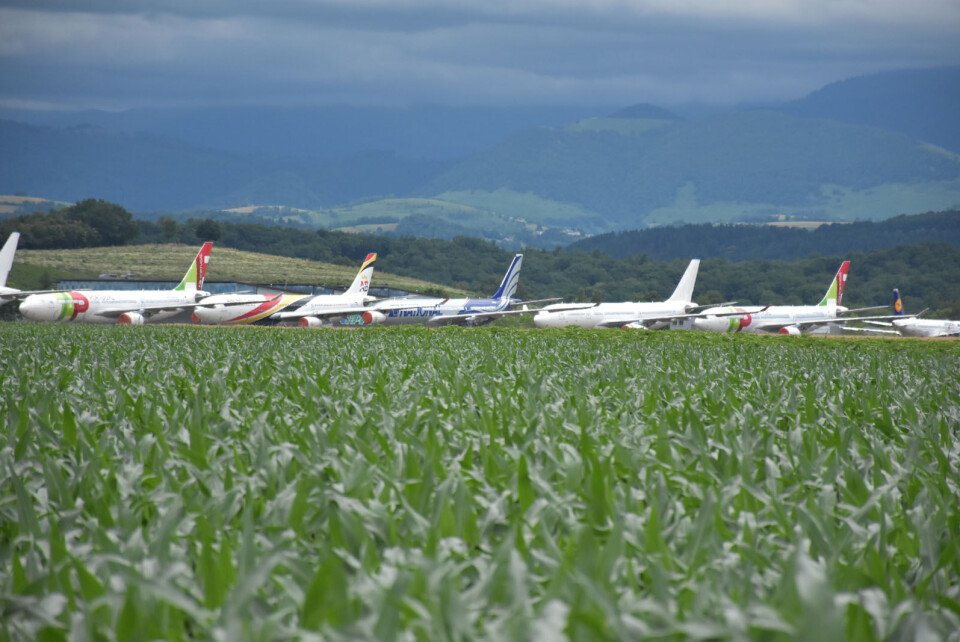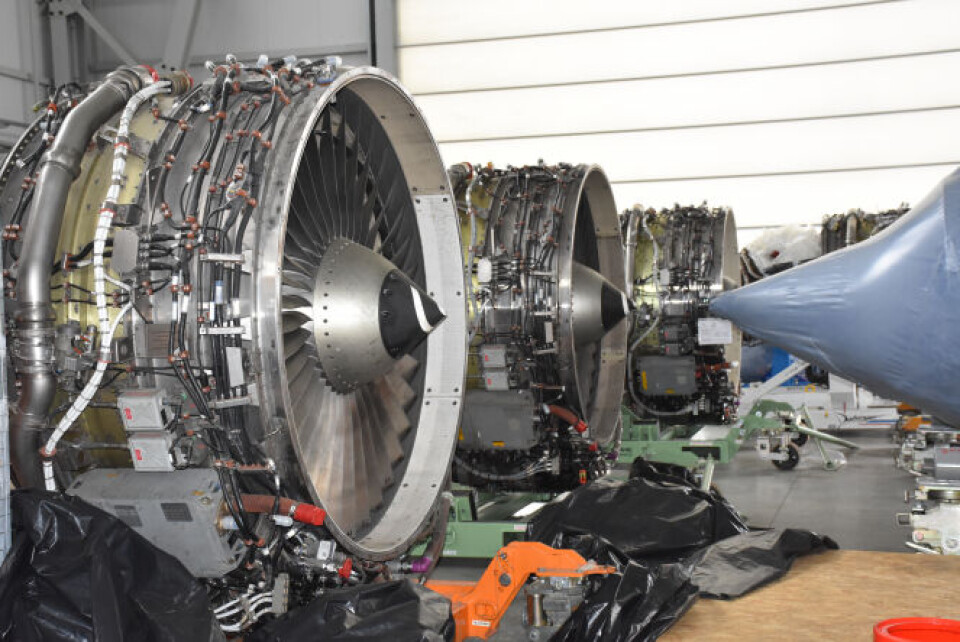-
Drinking tap water restricted for children in south-west France communes
Haute Garonne prefecture says the measure is precautionary and due to high chlorate levels
-
France targets imports from South America over banned chemical concerns
Avocados, mangoes, and cherries among food items set to be tested before entry
-
Environment and ecology: What's new in France in 2026
Changes include a ban on microplastics, the future of ZFE low-emission zones for drivers and new offshore wind farms
Innovative French service offering airline recycling and storage
Tarmac Aerosave, based across the runway from Tarbes Lourdes airport in Hautes-Pyrénées, is the world’s number one for aircraft and engine recycling

It is not just the pandemic that has put the brakes on air travel – a growing concern about the environmental impact of flying is placing further pressure on airlines.
While planes are getting more efficient, and airlines insist they are doing all they can to reduce emissions pollution, the spotlight is shifting to another eco concern – namely, what happens when machines reach the end of their lifespan?
Until the early 2000s, few considered this to be an issue. Old planes that could no longer be kept in working order were disposed of like used cars – either crushed and buried or left to rust in ghostly, giant scrapyards.
In 2007, a French firm was created to offer a solution to the problem and at the same time take advantage of a business opportunity.
A redundant plane might no longer be airworthy but it is still full of components that can be used as spare parts for planes still flying.
It just takes the facilities, the tools and the know-how to turn grounded junk into a stock of profitable pieces. Tarmac Aerosave, based across the runway from Tarbes Lourdes airport in Hautes-Pyrénées, is a consortium owned by plane-maker Airbus, Safran, a high-tech aerospace and aircraft engine manufacturing company, and Suez, which specialises in waste management.
It is the world’s number one for aircraft and engine recycling.

When a plane reaches the end of its life, it is flown to Tarbes where specialist teams get to work on it.
They start with the soft stuff – seats, carpets and other fixtures and fittings – and gradually reduce the fuselage to a shell. Engines, meanwhile, get special treatment in a hangar set aside for precision dismantling.
The final stage is to cut the aeroplane into chunks using a special diamond saw so that the steel and aluminium can be recovered.
Every piece – from seats to the black box – is sorted and stored ready for resale. What cannot be reused is sent for recycling. The windowpanes, for example, are turned into fleece jackets.
The whole process, from the plane’s final landing to the recycling bin, can take as little as two weeks, depending on the size of the aircraft. Almost 300 planes have been processed in this way over the last 14 years.
Tarmac Aerosave CEO Patrick Lecer said: “We reuse about 60% of the components, all carefully checked by engineers.
“Altogether, we can recycle 90% of an aircraft. One day, we hope it will be 100%. At present, it is only carbon, foam and some kinds of plastic that cannot be recycled.”
This is only one of Tarmac Aerosave’s activities: it provides another service to airlines, which came into its own during the pandemic.
Last year, air travel came to a virtual standstill. The sudden slump in flying meant that around 5,000 passenger aircraft had to be pulled out of service and stored for an indefinite period.
Tarmac Aerosave operates the biggest facilities for plane parking in Europe: 15km of apron, or tarmac, at four sites.
As well as Tarbes Lourdes, there is a large area for long-term storage at Teruel in Spain, where the same dry mountain air that is used for curing hams helps reduce the deterioration of paint and metal.
The other two sites are at Toulouse and Vatry, in north-eastern France.
Altogether, the company can store 280 planes, from smaller short-range models to jumbo jets and double-decker Airbus 380s.
‘Parking’ is not the right term, because an immobile aircraft needs constant monitoring and maintenance to retain its safety certification. A large amount of Tarmac Aerosave employees’ time is spent checking that every system on an aircraft is in working order.
On a more mundane level, each plane must be protected against damage by the elements and nesting birds.
Even without a pandemic, planes need to be stored for various reasons, including transitioning from one carrier to another or while held in reserve until seasonal demand puts them back in the air.
Recent events may have shaken up the industry, but will air travel return to what it was pre-pandemic, I asked Patrick Lecer?
“Yes,” he told me. “It may be a little reduced but the demand is still there.
“I have spent my whole career in the industry and it has doubled in size every 15 years or so.
“Perhaps, from now on, it will only double in size every 20 years.”
























